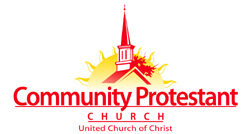The Pastor’s Study – March 2020
Have you ever accepted an invitation to attend a gathering only to find yourself questioning whether you belong there once you’ve arrived? My guess is that if you have, you’ve probably only done so a couple of times because you learn quickly that you don’t like the way it feels to be a person of questionable status, asking yourself repeatedly “Did I make a mistake in coming here?”
Strangely enough, one of those times that sticks out in my memory was when I was visiting a new church. I parked my car and walked up to the big, old front door. When I opened it and walked inside, I clearly remember what seemed like EVERY head was turned at an awkward angle with what seemed like a thousand eyes looking right at me – the new guy who apparently didn’t get the memo about how all of the regulars come in through the back door off the parking lot! I don’t think it was Pentecost, which was too bad because at least then the color of my cheeks would have matched the red banners. Surprised and a bit embarrassed, I don’t remember anything else about that church and its worship. I only remember those eyeballs staring at me and my discomfort. Perhaps it goes without saying, but I never returned.
Imagine for a moment what it’s like walking into a church that proclaims ‘All are Welcome’ and finding as you walk in that every eye is turned in your direction with a much more ambiguous message. Maybe it’s because of the color of your skin, or your clothes, or your tattoos and body piercings. Now imagine that you walk holding hands in with your spouse who happens to be the same gender. The sign said ‘All are Welcome;’ their eyes said otherwise.
While we at CPC have done our best to show Christ’s love to lesbian, gay, bisexual, and transgender (LGBT) folks and welcomed them into our family with open arms, it’s not the reception they expect from most churches. As a result, LGBT folk are usually hesitant to visit a church again, even if explicitly invited by a friend. Here’s a reflection from the UCC’s Open and Affirming Coalition:
LGBT people of faith often experience emotional and spiritual injury in churches that condemn their capacity to love and seek love. Because they’ve learned that “All Are Welcome” usually doesn’t apply to them, they can’t assume that any church will be safe for them and their families.
A public welcome by an Open and Affirming (ONA) church sends a clear message to LGBT seekers that they have a home in the United Church of Christ.
A congregation’s affirmation and support through an ONA covenant can be a life-changing and life-saving experience—especially for LGBT youth… By adopting an ONA covenant, a congregation is taking seriously St. Paul’s admonition to “accept one another, just as Christ accepted you, in order to bring praise to God.”
https://openandaffirming.org/ona/why/
At our February Council meeting, it was determined that our congregational focus for 2020 will be to build a more inclusive church through prayer, study, discernment, and action by engaging in the ‘Open and Affirming’ process. This process consists of four main steps: Listening, Engaging, Drafting a Covenant, and culminates with a Congregational Vote.
You may be wondering, “Aren’t we ONA already, because we have been genuinely welcoming to openly LGBT people now and in the past?” Frankly, the answer is ‘no.’ Open and Affirming is an official process that we have not undertaken to completion – and it matters. Without being an official ONA congregation, those who are seeking an explicitly welcoming church on the UCC’s website will see that CPC is listed in the directory as not being an ONA congregation, belying the love and acceptance that awaits them here. Those who are used to having all of the heads turn their way when they enter a church’s sanctuary will simply go elsewhere.
While this is a process and there are no forgone conclusions, I trust in this congregation’s faithfulness to Christ’s call to love our neighbor as ourselves, its ability to speak and hear the truth in love, and openness to the Spirit’s guidance. Rich in these resources of our faith, let us work together with boldness toward the goal of building a more inclusive church.

